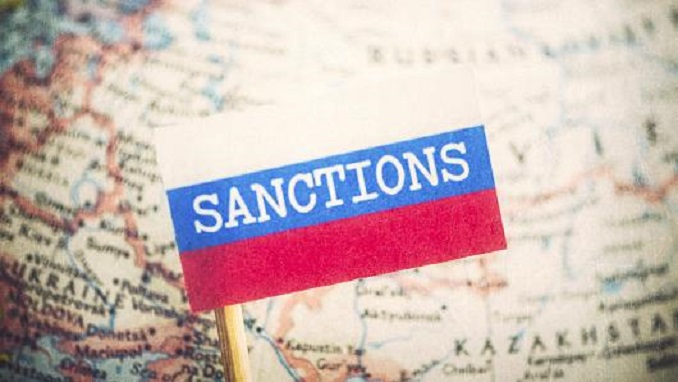Russia’s retaliatory measures against U.S. sanctions seem purely symbolic, with the Kremlin avoiding previously announced tough action out of fear of public backlash and scaring off foreign investors, analysts told Deutsche Welle.
The country’s Parliament on Wednesday passed a significantly watered-down version of a controversial bill outlining Russia’s retaliatory measures against U.S. sanctions, giving the Russian President broad authority to ban goods from the U.S. and other states the Kremlin deems as hostile to Russia. The bill is Kremlin’s response to U.S.-led penalties levied against key Russian companies in April over what the White House deemed “malign Russian activities.”
The current version of the bill, which has yet to be approved by the Federation Council, Russia’s upper house of parliament, and signed by President Vladimir Putin, doesn’t mention any specific industries, goods or services. The concrete measures outlined in the initial draft have been replaced by broader language.
“The work by NGOs, the public chamber, petitions, social networks — such a stable and high-profile public outcry scared the authors of the bill and showed them that citizens are irritated, which is absolutely unfortunate right after the presidential elections,” Moscow-based political analyst Ekaterina Shulman told Current Time, a U.S.-government funded Russian-language broadcaster, adding that pressure from the business sector also played a role.
Chris Weafer, a senior partner at Moscow-based consulting firm Macro-Advisory, called the possible steps outlined in the bill a “purely symbolic” gesture.
“Russia could hurt a few U.S. industries, which are reliant on it for materials or have big investments in the country, but the longer-term damage to Russia would be considerably greater, so the Kremlin would never allow any of that,” Weafer said.
The final version of the document that was passed on Tuesday “doesn’t bind anyone to anything,” said Shulman, explaining that passing retaliation through parliament was critical, in order to show that the Duma plays a role in setting Russia’s foreign policy. “This idea wasn’t fully brought into life, but an effort had been made,” she said.












